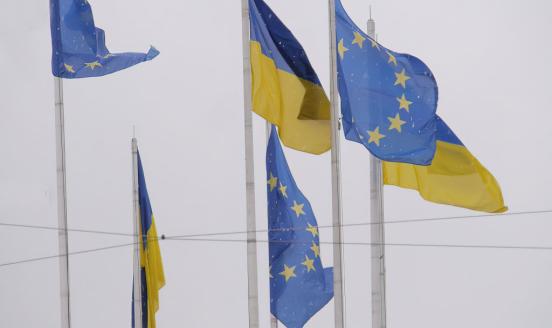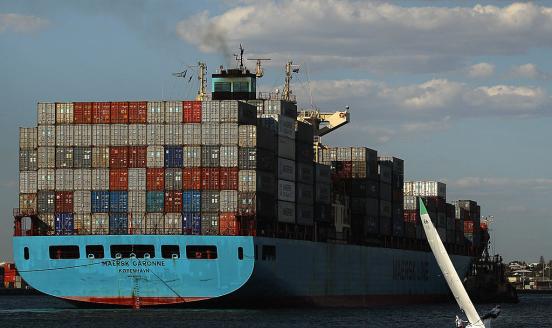Can the G20 save globalisation?
The current of wave of globalisation that started at the end of the twentieth century has a lot in common with the previous wave that began one century earlier. The same factors are behind both: technological change and political decisions to open up markets for freer trade and capital movements. Likewise both created huge economic opportunities and wealth, but also huge economic and political tensions within and across countries.
Domestic tensions arise because not everyone in a country is able to take advantage of the opportunities created by globalisation and some clearly lose out from technological change or freer trade. International tensions result from an unequal distribution of the gains and pains from globalisation across nations. During the first wave of globalisation, tensions were mainly between established colonial powers (primarily Britain, France and Russia) and new ones (mainly Germany and Japan). The colonised nations, including China and India, were simply too weak economically and politically to be autonomous actors during this period. The combination of domestic and international tensions, mainly within and between European powers, is what eventually led to the first world war (WWI) and the end of the first wave of globalisation.
Is the current wave of globalisation doomed to end the same way?
There are two major differences between the current and the earlier waves of globalisation. The first is the respective role of the centre and the periphery. The end of the nineteenth century and the beginning of the twentieth century was the age of Europe and imperialism, with what is now referred to as “emerging countries” falling rapidly behind. The beginning of the twenty-first century, by contrast, is an age in which the BRICs (Brazil, Russia, India, China) and other emerging countries are growing in strength.
The second difference between the current and earlier waves of globalisation concerns institutions. The domestic and international confrontations that brought the first wave of globalisation to an end happened in an environment in which nations clearly lacked adequate institutions to resolve conflicts. It took the first world war, the Great Depression and the second world war for countries, mainly European nations and the United States, to set up the institutions of global economic governance, such as the World Bank, the IMF and the GATT/WTO, aimed at containing the kind of economic and political tensions inherent to the process of economic transformation brought about by globalisation.
How well have the global institutions performed during the current wave of globalisation?
Before the financial crisis, a clear disconnect had developed between the shift of global economic power in favour of the emerging countries and the largely unchanged global economic regime still dominated by the industrial countries. In particular, the Bretton Woods institutions remained squarely under the leadership of the G7, a grouping by then accounting for only about 40 percent of world GDP (measured in purchasing power parities) and 10 percent of world population. By contrast, the G20, a grouping of major advanced and emerging countries created in the wake of the Asian crisis, although accounting for 80 percent of world GDP and 60 percent of world population, only assumed a minor role, perhaps because, contrary to the G7, it only operated at finance minister and central bank governor levels.
Despite the weak state of global economic governance at the start of the financial crisis, the international community was able to act cooperatively and prevent a replay of the ‘beggar-thy-neighbour’ policies that plagued the Great Depression of the 1930s. Credit for this goes to the first two summits of the G20 leaders held in Washington in November 2008 and in London in April 2009. As well as helping to stabilise international currencies, revive international trade and avert global depression, these summits marked the end of an era in which America, Europe and Japan dominated world affairs, and the beginning of a potentially new relationship between mature and emerging economies.
So can globalisation be sustained despite the unprecedented speed and size of the global transformation brought about by China, India and other emerging countries? The answer is perhaps yes if the G20 can evolve from a crisis committee to a global steering committee and can help reform global governance institutions and global policies. Its members must now come forward with concrete reform proposals. On the side of the advanced countries, the European Union has the duty to contribute to the reform of the Bretton Woods institutions in which its members are grossly over-represented in terms of voting rights and board seats. Decreasing the EU weight would permit better representation of emerging and developing countries, and might even increase the EU’s influence if its reduction in voting rights coincided with unified representation. For their part, emerging countries, particularly China and India, must commit to play a more active role in global institutions and policy design. Their greater economic and political weight must go hand-in-hand with greater sharing of global responsibility.
The issues raised in this contribution, along with other issues, will be discussed in Session 7 of the Globsec 2012 Global Security Forum in Bratislava, April 12-14, which session is co-organised by Bruegel and the Slovak Atlantic Commission. The panellists will be Ignazio Angeloni (ECB and Bruegel), Dmitri Suslov (Council on Foreign and Defence Policy), Jim O'Neill (Goldman Sachs Asset Management), and Liming Wang (University College Dublin).



